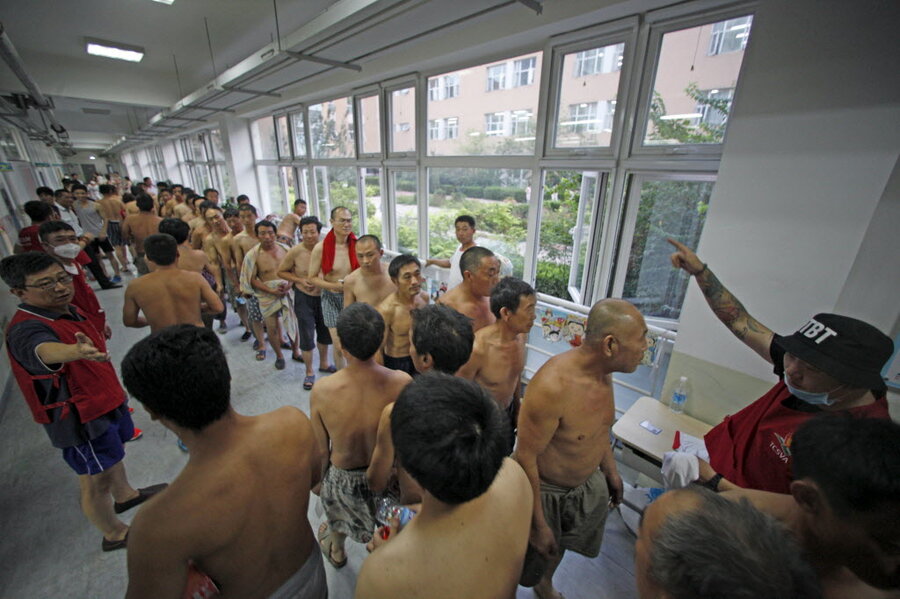After another China disaster, giving again in spotlight
Loading...
China has been in the spotlight lately for its disasters, from a giant earthquake in 2008 to a cruise ship capsizing last June. The latest tragedy, the twin explosions in the port city of Tianjin Aug. 12, was perhaps the most spectacular. A fireball rose skyward like the puff of an angry dragon, killing over 100 and forcing more than 6,000 to evacuate.
While the Chinese once again rushed to debate the cause of the disaster and the government’s reaction to it, less noticed was the humanitarian response by private individuals and groups. Tianjin taxi drivers rushed to take victims away. Volunteers turned schools into shelters. Churches arranged prayer vigils. And big-name actors and businesspeople donated money. Martial arts superstar Jackie Chan pledged $468,900.
Such public generosity may be on the rise in China, a phenomenon worth watching – and not only because of the country’s size and wealth. China ranks near the bottom on a world giving index, based on a survey of 135 countries for their level of donations and volunteering. Less than 10 percent of China’s 1.3 billion people usually make donations.
The 2014 giving index, conducted by the British-based Charities Aid Foundation, was designed to come up with answers to the question of how to “encourage more people to give their time or money to help others.” In China, after each recent natural or man-made disaster, a lively debate has usually ignited on the topic.
The ruling Communist Party, which reigns over the world’s second largest economy, is worried about China’s low ranking in generosity but also a rise in the number of charities that might challenge the party’s leadership. Giving has risen with the country’s new wealth and other factors, such as digital networking on social media. After the 2013 earthquake in Lushan, for example, an estimated $48 million in donations was raised in only 10 days.
The government also realizes it is often inadequate in responding to a disaster. In recent years, it has adjusted rules and tax benefits for charities and foundations to allow them to expand while also trying to keep them under the party’s thumb. Nonprofit groups are usually required to work with GONGOs (government-organized non-governmental organizations), such as the party-controlled Red Cross.
An official commentary in one Beijing publication claimed the level of giving after the Tianjin blast was caused by “a modern citizen’s consciousness and responsibility.” At the same time, officials censored the use of social media after the disaster to contain public anger.
Giving comes from the heart, making it difficult for the party to either encourage or control. So how might China’s charitable giving rise in the future? As the Charities Aid Foundation noted in its latest index, “There is ... little correlation between a country’s economic position and its place on the World Giving Index, showing once again that we must not take it for granted that economic prosperity will automatically equal a rise in generosity.”
It may be far better to watch what private Chinese do after each disaster. So far the trend looks good for more giving in China.







